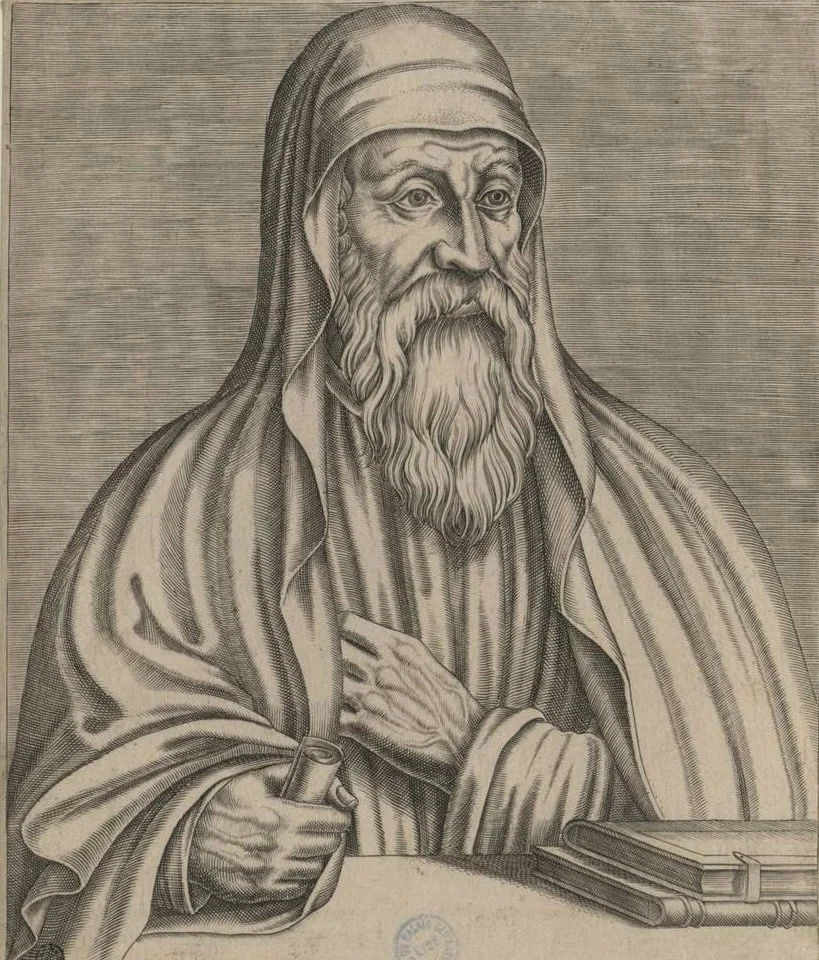A forum in celebration of Robin Darling Young and Joseph Wilson Trigg’s The Contra Celsum of Origen: English Translation and Facing Greek text (Washington and Cambridge: Harvard University Press/Dumbarton Oaks, 2026).
Yael Fisch, Karama Ben-Johanan, and Raphael Magarik engaging Raz’s notion of “weak prophecy” in this review forum, with author response.
SBL Review Panel for Anathea Portier-Young’s The Prophetic Body: Emodiment and Mediation in Biblical Prophetic Literature
Co-Sponsored by the Religious Experience in Antiquity and Senses, Cultures, and Biblical Worlds Program Units of the Society of Biblical Literature
November 23, 2024
This review panel features responses from a range of scholars working in late antiquity, originally shared at the 2024 Society of Biblical Literature Annual Meeting.
A review panel from the 2024 Association for Jewish Studies featuring scholars engaging with Simcha Gross’s award winning Babylonian Jews and Sasanian Imperialism in Late Antiquity.
The 2023 Society of Biblical Literature's review panel for Yael Fisch, Written for Us: Paul’s Interpretation of Scripture and the History of Midrash.
AJR is thrilled to feature the responses of Dr. Samuel Cook and Dr. Jacob Lollar along with the response of Dr. Miroshnikov in this three-part series.
With the publication of Staging the Sacred, I hoped to convene a large and robust conversation; it reflects a decade or more of my efforts to imagine the lives lived by those who wrote, heard, and loved these texts. The volume both reflected an attempt to gather disparate thoughts and suggest where those thoughts could take us—but I could hardly anticipate all the directions, or account for every element of so rich a topic.
Mapping the affective properties of hymnography in performance between leader and participant still leaves open the question of other goals those speech acts may be intended to accomplish. We now know more about the skills, desires, and aspirations of the poets and how they express and above all communicate with their audiences. Yet these values and aspirations, it must be said, are ideals.
But no one has yet woven together these three modes of performance (theater, oratory, and hymnody) in the terms Laura Lieber offers here: considering how deeply the very mechanics of theatrical performance shaped and informed the ritual lives of late antique Jews, Samaritans, and Christians. This is not at all the same as thinking about ancient tragedy and comedy as themselves religious rituals of sacrifice and prayer. It is about how key religious figures – ritual agents, community leaders, but most especially and above all, the poets who wove the separate parts into seamless tapestries – learned their crafts, learned the tools necessary to make the rituals of religious life and worship effective.
Commentaries often give the impression that a singular reading of a text like Revelation is possible, even though feminist, womanist, and queer scholars challenge this idea, highlighting instead the multiplicity of meanings within any given narrative.
The book-length treatment provided by the Wisdom Commentary allows its volumes to take their place alongside long-hallowed reference commentaries. But cracking open these pages is something altogether different.
This commentary does something that is not standard in the literary genre of commentary; it espouses multi-faceted interpretation as its goal rather than its nemesis or foil.
The commentary builds upon, supplements, and expands an already rich repertoire of reflections upon, interpretations of, and interventions in contemporary as well as ancient receptions of Revelation, a book which cannot, does not, and will not let us — our culture, our students, our guild, our imaginations — go.
Adele Reinhartz introduces a memorial panel for the late E.P. Sanders that occurred at the 2023 SBL Annual Meeting.
The fantasies ancient writers and contemporary scholars create around these larger than life “Fathers” continue to be a point of interest for me and those fantasies have histories of their own.
But while Barry’s book is not about an upcoming rebranding of Virgin Airlines, it is about bishops and how they and their biographers spun a narrative of Christian exile as a heroic endeavor rather than a cowardly withdrawal.
How might closer attention to space and place provide insight into the phenomenon of bishops in flight in the fourth century CE?
Violence more generally, like the interpretation of exile, was contested throughout late antiquity (and until now) by leaders who were not currently in power.
Bishops in Flight reminds us to look to how narratives arise in in the collective memory of a community.
AJR is pleased to host the #SBLAAR2022 review panel of Jeremiah Coogan's Eusebius the Evangelist: Rewriting the Fourfold Gospel in Late Antiquity (Oxford University Press, 2022).
Reading over Eusebius’s shoulder affords an opportunity to rethink what we are doing as Gospel readers.
By naming Eusebius as an “evangelist,” however, Coogan asks scholars to take a further step and acknowledge that writing and reading are always already pre-determined by prior commitments and categories.
These paratextual tools, he shows, enabled the many excerpting, reorganizing, and compiling projects of late antiquity, the very literary features, in fact, that earned the period the reputation of intellectual decline in modern assessments.
With Eusebius the Evangelist, Professor Jeremiah Coogan offers a vivid and illuminating portrayal of the Eusebian apparatus and its manifold afterlives.
While not based on a close study of a select group of manuscripts, Eusebius the Evangelist often centers the materiality of the text in its analysis, and encourages the reader to experiment with the Canons—easier said than done, of course, if one doesn’t have an ancient manuscript in one’s hands, but it’s possible to do makeshift experiments nonetheless.
To the end of highlighting the far-reaching significance of the book, we have gathered a group of scholars who, while all working on late antiquity, specialize in a diversity of materials and languages.





























